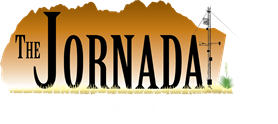

- Knowledge, Learning, Analysis System (KLAS) (GA Ramirez, D Peters, K Havstad, et al) - The goal of KLAS is to develop a new scientific approach that takes advantage of the data deluge, defined here as both legacy data and new data acquired from environmental and biotic sensors, complex simulation models, and improved technologies for probing biophysical samples. This approach can be implemented as a knowledge-driven, open access system that "learns" and becomes more efficient and easier to use as data streams increase in variety and size.
- The EcoTrends Project: Long-Term Data Provide Ecological Insights to Scientists and Non-Scientists (S Peters, J Yao, D Peters, S Bestelmeyer) - Environmental drivers are changing at local to global scales with corresponding effects on ecological dynamics. Large amounts of data have been collected to document these changes. Much of the data remain inaccessible to a broad audience. Solutions to these environmental problems have been elusive. The EcoTrends Project is one of the first attempts to standardize, simplify, integrate, and visualize data from diverse terrestrial, aquatic, and marine ecosystems to promote understanding and synthesis by a broad audience. These data and more are available on the EcoTrends website https://ecotrends.info.
- Science in the Time of Big Data: What Happens When Google Meets the Jornada LTER? (D Peters, K Havstad) - “Big Data” is quickly becoming the norm in scientific research. While having a plethora of data has substantial implications for science, it is accompanied by logistical and theoretical complications. Although attention has focused on accessibility, use, and analysis of big data, advancements are also needed in the way that scientists think about and study ecological systems in order to take advantage of Big Data. Presented here is a solution for scientists to effectively utilize Big Data to advance ecology.


